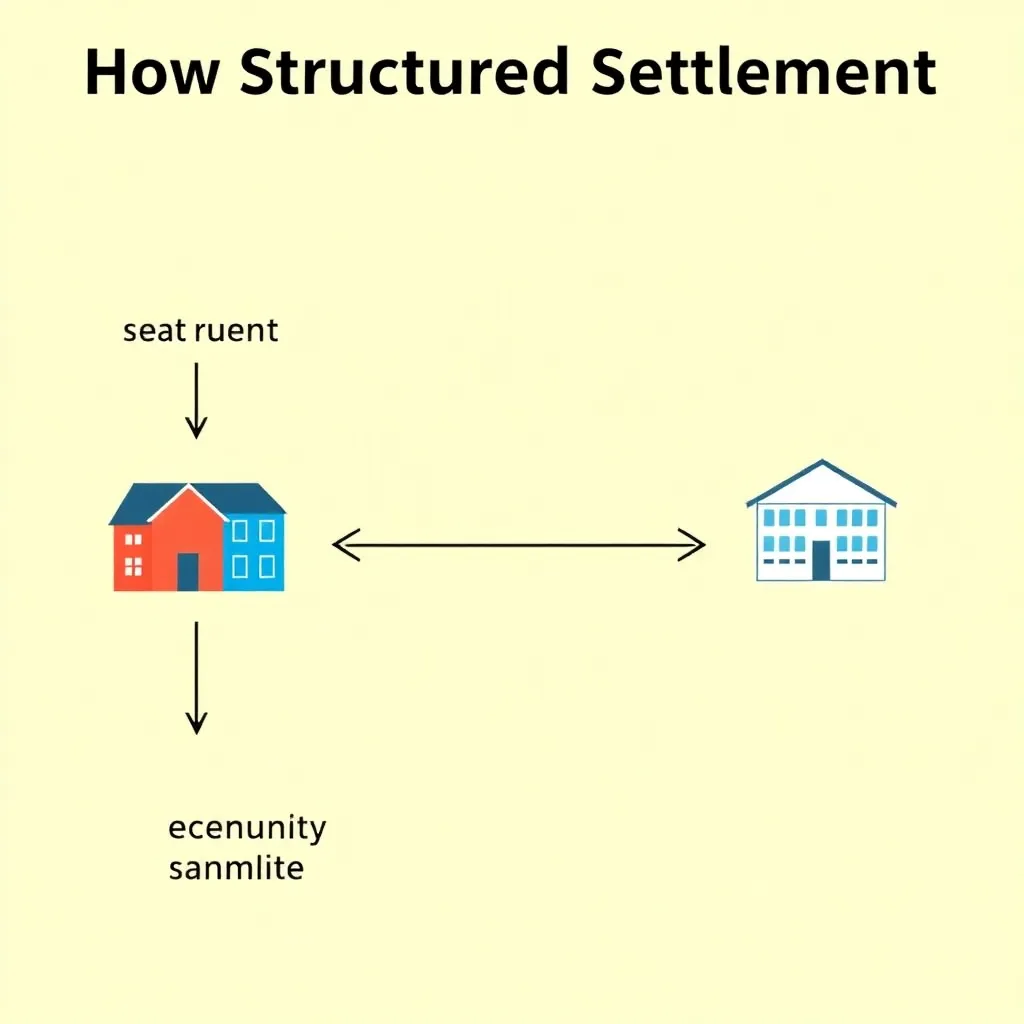Introduction
Structured settlements provide long-term financial security for individuals who have received compensation from personal injury lawsuits or other claims. These settlements are typically paid out in regular installments over time, ensuring a steady income. However, circumstances can change, leading some individuals to consider selling their structured settlements for immediate cash. This article explores the process of selling a structured settlement, the benefits and drawbacks of doing so, and the legal and financial considerations involved.
Understanding Structured Settlements

A structured settlement is a financial arrangement that results from a legal claim, such as a personal injury lawsuit. Instead of receiving a lump sum, the injured party receives periodic payments over a specified period. These payments are often tax-free and can be designed to meet the recipient’s long-term needs.
Key Features of Structured Settlements
- Guaranteed Payments: The payments are guaranteed, providing a stable source of income.
- Tax Benefits: Structured settlements typically offer tax advantages, as the payments are often exempt from federal and state taxes.
- Customization: The settlement can be customized to fit the recipient’s needs, with options for different payment schedules and amounts.
While structured settlements offer financial security, some individuals may face unforeseen circumstances, such as medical expenses, debt, or significant life changes that necessitate access to cash more quickly.
Reasons for Selling a Structured Settlement
Individuals choose to sell their structured settlements for various reasons, including:
Immediate Financial Needs
Unforeseen financial emergencies, such as medical bills, home repairs, or job loss, can prompt individuals to consider selling their structured settlements. Accessing a lump sum can help cover immediate expenses that may otherwise lead to financial instability.
Investment Opportunities
Some individuals may wish to invest the cash from their structured settlement sale into business ventures, real estate, or other investment opportunities that promise higher returns than the long-term payments.
Debt Repayment
High-interest debts, such as credit card bills or personal loans, can burden individuals financially. Selling a structured settlement can provide the necessary funds to pay off these debts, leading to a more manageable financial situation.
Lifestyle Changes
Life circumstances can change dramatically, prompting individuals to seek more liquidity in their finances. For example, moving to a new city, starting a family, or pursuing education can require significant financial resources.
The Process of Selling a Structured Settlement
The process of selling a structured settlement involves several steps that ensure the transaction is legal and beneficial for the seller.
Step 1: Evaluate Your Settlement
Before deciding to sell your structured settlement, it’s essential to evaluate the terms of your settlement agreement. Understand the payment amounts, frequency, and total value. Assess your current financial situation to determine how much cash you need and how selling the settlement aligns with your financial goals.
Step 2: Research Buyers
Many companies specialize in purchasing structured settlements. It’s crucial to conduct thorough research to find a reputable buyer. Look for companies with positive reviews, transparent practices, and strong customer service. You can consult online resources, ask for recommendations, and check the buyer’s standing with the Better Business Bureau.
Step 3: Get Quotes
Once you’ve identified potential buyers, reach out to them for quotes on your structured settlement. The buyer will typically request details about your settlement and may require documentation to evaluate the offer. Different companies may provide varying quotes, so it’s wise to compare offers.
Step 4: Understand the Offer
When you receive an offer, take the time to understand the terms. Consider the total cash you will receive compared to the total future payments you are giving up. Analyze the implications of selling a portion or all of your structured settlement and how it will affect your financial future.
Step 5: Seek Professional Advice
Consult with a financial advisor or attorney before finalizing the sale. They can help you understand the financial implications, tax consequences, and legal aspects of selling your structured settlement. Their expertise can help you make an informed decision that aligns with your long-term financial goals.
Step 6: Legal Proceedings
If you decide to proceed with the sale, the buyer will typically require court approval to finalize the transaction. This step is crucial to ensure that the sale is in your best interest and complies with state laws. The court will evaluate your circumstances and the terms of the sale before granting approval.
Step 7: Receive Your Payment
Once the court approves the sale, you will receive your lump-sum payment. This payment can be used for immediate financial needs, investments, or any other purpose you deem necessary. Ensure that you manage the funds wisely to avoid future financial difficulties.
The Benefits of Selling a Structured Settlement

Selling a structured settlement can provide several advantages, including:
Immediate Cash Access
One of the most significant benefits is the immediate access to cash. This can help alleviate financial stress and provide a sense of security during challenging times.
Flexibility
Having a lump sum allows for greater flexibility in managing finances. You can invest the money, pay off debts, or use it for essential expenses without being tied to a fixed payment schedule.
Financial Control
Selling your structured settlement empowers you to take control of your finances. Rather than relying on future payments, you can make decisions based on your current needs and priorities.
The Drawbacks of Selling a Structured Settlement
While selling a structured settlement offers benefits, there are also drawbacks to consider:
Loss of Future Payments
By selling your structured settlement, you forfeit the future payments that could provide long-term financial security. It’s essential to weigh the immediate need for cash against the potential future benefits of the settlement.
Potentially Lower Offers
Buyers typically purchase structured settlements at a discount, meaning you may receive less than the total value of your future payments. Understanding the present value of your structured settlement is crucial when evaluating offers.
Legal and Transaction Costs
The process of selling a structured settlement can involve legal fees, transaction costs, and court approval fees. These expenses can reduce the total cash you ultimately receive from the sale.
Tax Implications
While structured settlement payments are generally tax-free, selling your settlement may have tax implications. Consulting a tax professional can help clarify how the sale will affect your tax situation.
Legal Considerations When Selling a Structured Settlement
Several legal factors come into play when selling a structured settlement, and understanding them is essential for a smooth transaction.
State Laws
Each state has specific laws governing the sale of structured settlements. These laws often require court approval to ensure that the sale is in the best interest of the seller. Familiarize yourself with your state’s regulations to ensure compliance.
Court Approval
As mentioned earlier, most states require court approval for the sale of a structured settlement. This process ensures that the seller understands the implications of the sale and that it aligns with their financial needs.
Contracts and Agreements
When selling your structured settlement, you’ll enter into contracts and agreements with the buyer. It’s crucial to review these documents carefully and understand the terms before signing. Legal advice can be beneficial at this stage to ensure your interests are protected.
Finding the Right Buyer
Finding the right buyer for your structured settlement is critical to ensuring a fair transaction. Here are some tips for selecting a reputable buyer:
Research and Reviews
Look for companies with positive customer reviews and a solid reputation in the industry. Research their history, customer service, and transparency in the buying process.
Compare Offers
Don’t settle for the first offer you receive. Compare offers from multiple buyers to ensure you get the best deal. Remember to consider the terms and conditions associated with each offer, not just the cash amount.
Ask Questions
Don’t hesitate to ask potential buyers questions about the process, fees, and any other concerns you may have. A reputable buyer will be open and willing to provide clear answers.
Conclusion
Selling a structured settlement can be a viable option for individuals facing immediate financial needs or seeking greater control over their finances. However, it is essential to carefully evaluate the decision, understand the implications, and navigate the legal process with the help of professionals. By conducting thorough research, comparing offers, and seeking legal advice, you can make an informed choice that aligns with your financial goals and provides the support you need during challenging times.








